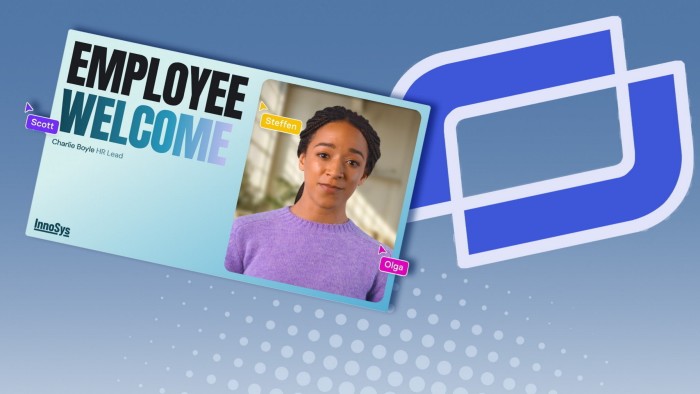Stay informed with free updates
Simply sign up to the Artificial intelligence myFT Digest — delivered directly to your inbox.
London-based artificial intelligence start up Synthesia said it secured a valuation of $2.1bn, in a boost to the UK group’s effort to challenge global rivals in the race to build applications and tools based on generative AI.
The company, which uses AI to create realistic video avatars based on humans, announced on Wednesday it has closed a new $180mn in new funding round led by US venture capital group NEA. Existing investors Google Ventures and Accel Partners also participated in the round. Previous investors include Silicon Valley heavyweight Nvidia.
Victor Riparbelli, chief executive of Synthesia, said the deal signalled investor enthusiasm in the UK’s AI sector, which is home to Google’s AI arm DeepMind, as well as leading universities such as Oxford and Cambridge with a strong record of training leading experts in the field.
“The UK is the only country in the European region right now that has a real shot at becoming a top-three AI superpower,” said Riparbelli in an interview with the Financial Times.
UK Prime Minister Sir Keir Starmer unveiled new AI policies on Monday designed to boost economic growth, saying he believes the UK “will become the best place to start and scale an AI business”.
However, the sums raised by tech groups in the UK and Europe are dwarfed by the funding available in the US and China, with critics suggesting European start ups are also hampered by more stringent regulation around AI models.
“We have a brand problem in the UK that the government can do a bit more to tell the world we are open for business, encourage people to come here [and] not screw it up by overregulating or changing tax policies too much,” said Riparbelli.
Synthesia was founded in 2017 and has 400 employees in offices in London, New York and across Europe.
It primarily uses proprietary AI models to replicate humans and develop avatars that can be prompted by text and deliver speech in a realistic video. The company said it would use the new funding to make the avatars more lifelike, with a focus on helping businesses create them for corporate communications.
“There is still a lot to do to make them more natural, more photoreal . . . enabling them to pick up objects and talk to each other in a room,” Riparbelli added.
“The things we are investing in are all about dialogue through videos of humans, so we are not going to be caught up in [generating] a video of a dog skateboarding at the beach but [instead] a presenter for a marketing video.”
The company has previously been embroiled in controversies over the creation of so-called “deepfakes” — digital likenesses of real people. In one incident from 2023, faked online news reports in Venezuela were created using Synthesia’s technology. The company said at the time the Venezuelan client was subsequently banned from using its service.
Synthesia made £25.7mn in turnover last year, the majority of revenues coming from outside of Europe, according to Companies House filings. It reported post-tax losses of £23.6mn in the year ending December 31.
Its competitors include start-ups such as HeyGen, a Los Angeles-based company that raised $60mn in June 2024, and New York-based ElevenLabs, which focuses on voice cloning and raised $80mn in January last year.
Synthesia charges on a subscription basis allowing users to create a presenter-led video, which can read out text and translate it into different languages. The company said it had more than half of the Fortune 100 using its software, and its clients include Zoom, Xerox and Microsoft.
“We are building what we think of as like PowerPoint 2.0, for your average office worker,” Riparbelli added. “It is not super creative content; it is informative and educational content. These are people who don’t have time to sit and prompt something 40 times to get something really interesting.”
Read the full article here

